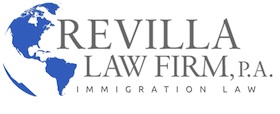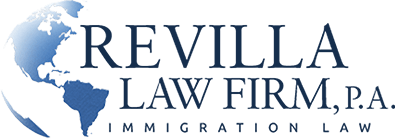The two terrorist attacks six weeks apart in New York City carried out by two recent immigrants were swiftly contained and the suspects arrested. But the political consequences instantly started reverberating.
Akayed Ullah, 27, a green card holder from Bangladesh who is accused of detonating a bomb in a subway tunnel on Monday, came to the United States on what is known as an F43 visa, available to the nieces and nephews of U.S. citizens. Sayfullo Saipov, 29, from Uzbekistan, won his visa in a diversity lottery intended to bring immigrants from underrepresented countries to the United States.
The Trump administration would like to end both those programs, and the two suspects quickly became Exhibit A and Exhibit B in the case to restrict legal immigration.
At Tuesday’s White House press briefing, L. Francis Cissna, the director of the United States Citizenship and Immigration Services, said Mr. Ullah’s uncle had won a diversity visa and, after becoming a United States citizen, sponsored his nephew for permanent residency. What the administration called “extended-family chain migration” needs to be broken, Mr. Cissna said.
“You can sponsor a person, like yesterday’s alleged terrorist, at the extremity of that chain, and that person can in turn sponsor people, and so on and so on, indefinitely,” he said.
“It is my view, it is our administration’s view, that that is not the way that we should be running our immigration system,” Mr. Cissna said.
Mr. Saipov came to the United States in 2010, and he is now accused ofkilling eight people with a truck on the West Side Highway bike path in October. The diversity visa program that allowed him to emigrate to the United States should end, Mr. Cissna said. “What we need is an immigration system that is selective. We want to be able to select the types of people that are coming here based on criteria that ensure their success, criteria that assure their ability to assimilate successfully in this country.”
In New York on Tuesday, both Mayor Bill de Blasio and immigration professors said “family reunification” could be a less pejorative synonym for “chain migration.”
“You and probably a lot of people in your family are only here because other family members who were allowed to come after the first family members got here,” Mr. de Blasio, a Democrat, said. “That’s called family reunification. But if we’re now talking about a new generation of immigrants who are, in many cases, people of color, and suddenly it’s ‘chain migration,’ and it’s a bad thing.”
Philip Kasinitz, a sociology professor at the Graduate Center of the City University of New York, added, “On balance, this system has worked out pretty well.” He continued: “The fact that most legal immigrants are related to people who are already here means that newcomers arrive with connections to people who are already established. This give them a leg up in finding jobs and getting settled.”
In the parlance of immigration, the first through third family preferences go to a citizen’s spouse, children and their children. The fourth preference is for a citizen’s siblings and their children — what the immigration services director called “the most extreme, remote possible family-based connection that you can possibly have under current immigration law.”
President Trump, in an October statement, said that only spouses of American citizens and their children who are minors should be allowed into the country as immigrants.
On Tuesday, Ramzi Kassem, a law professor at CUNY and the founder of Clear, a group that advises Muslim immigrants in Brooklyn, said, “One has to ask if the Trump administration’s reaction to this senseless act of violence is less about sound immigration or security policy and more about the politics of prejudice, scapegoating and collective punishment.”
While Mr. Cissna said that of the one million immigrants who get visas every year, hundreds of thousands of people come to the country through family preferences annually. However, the numbers in the last category of family visas is relatively low.
According to the State Department, in fiscal year 2016, 61,368 of the visa holders came on them. That is about 6 percent of the total.
Statistics show that the majority of those receiving the visas are from Asia. According to the State Department, in the 2016 fiscal year, a total of 7,196 people from Bangladesh obtained them, the third highest country of origin, behind Vietnam and India.
There is an argument, said Richard Alba, a professor of sociology at the Graduate Center, that those high numbers make up for the deficit created by the quotas and exclusions of Asian immigrants during the late 19th century and early 20th century.
“If it weren’t for immigration, New York City would be a far smaller, older, less economically successful city by a substantial margin,” said John Mollenkopf, the director of the Center for Urban Research at the Graduate Center of the City University of New York.
New York saw a tenfold growth in Bangladeshi-born residents from 1990, when there were 8,748 of them in the city, to 2016, when there were 81,234, Prof. Mollenkopf said.
The diversity visa, which lets in 50,000 immigrants annually, was a primary entry point for Bangladeshi immigrants 10 years ago, Mr. Cissna said. The program was originally created in 1990 to stimulate immigration from European countries that were outnumbered by South Asian immigrants after 1965 immigration laws opened the doors to Asians.
In 2007, the peak year for Bangladeshis, 27 percent of the immigrants from that country came through the diversity program, Mr. Cissna said. But the numbers multiplied to the point that in 2012, Bangladesh was no longer eligible for the lottery, the State Department said.
Uzbeks in New York and around the country have similarly benefited from the diversity visa lottery. In 2010, 70 percent of immigrants from Uzbekistan came through that path.
Mr. Cissna said that would-be terrorists could exploit the program because it had low standards of admission. “Pretty much anybody on the planet who’s from a qualifying country can take advantage of this,” he said.
But he said he did not have information about immigrants admitted through the diversity program who ended up being radicalized.
https://www.nytimes.com/2017/12/12/nyregion/bombing-suspects-visas-trump-end-immigration.html
REVILLA LAW FIRM, P.A.
Miami immigration lawyers
Contact our office today for a free in-office consultation.
Call: (305) 858-2323 or toll free (877) 854-2323


